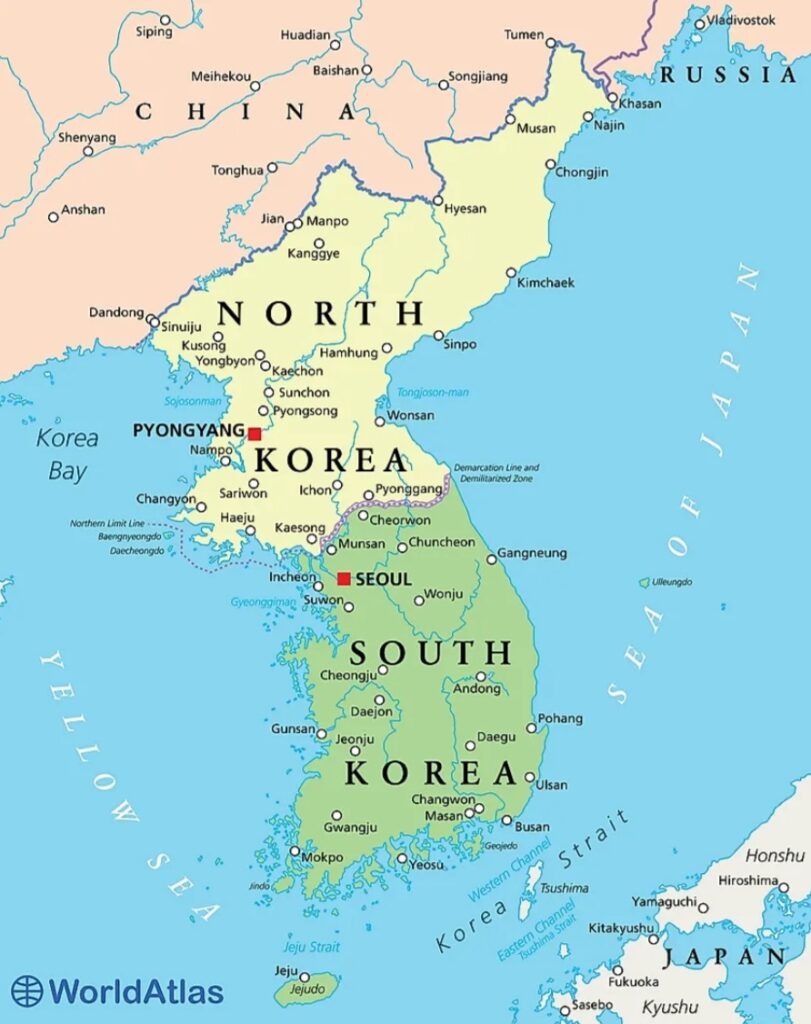By: Harshit Tokas, Research Analyst, GSDN

The recent events surrounding North Korea’s missile launch and South Korea’s response have catalyzed a surge in tensions, marking a significant escalation in the already volatile situation in the Korean Peninsula. North Korea’s apparent missile test, closely following its claimed successful satellite launch, has provoked strong reactions from neighboring countries and the international community at large.
South Korea’s Joint Chiefs of Staff reported a suspected unsuccessful missile launch from North Korea’s capital region recently. This launch, directed towards the sea east of North Korea, was believed to have ended in failure. Despite this failure, the specifics regarding the type of missile fired and the reason for the launch’s unsuccessful outcome were not disclosed.
This missile launch came hot on the heels of South Korea’s decision to suspend parts of the 2018 inter-Korean military agreement, a response to North Korea’s satellite launch a day earlier. The 2018 agreement had established demilitarized zones and restricted aerial surveillance along the heavily fortified border between the two Koreas. North Korea’s subsequent missile test was seen as a direct challenge to South Korea’s stance, exacerbating the already strained relations.
In retaliation, North Korea issued a stern response, threatening to bolster its armed forces and deploy additional military equipment at the border while renouncing the terms of the 2018 military agreement. This move heightened military tensions, with North Korea condemning South Korea’s actions as provocative and claiming they were responsible for pushing the situation into an uncontrollable phase.
North Korea’s claimed success in launching the Malligyong-1 satellite was presented as part of its endeavor to enhance its surveillance capabilities against the US and South Korean forces. However, while South Korea acknowledged the satellite’s entry into orbit, further assessments were underway to verify its functionality.
The international community’s response to these provocations was swift and unequivocal. The White House expressed concerns over the missile launch, highlighting the risks it posed to regional stability and security. Japanese Prime Minister Fumio Kishida lodged a strong protest against North Korea’s actions, emphasizing the need for adherence to international norms and the maintenance of regional stability.
Amidst widespread opposition and criticism, North Korea remained steadfast in defending its sovereign right to strengthen its surveillance capabilities through satellite launches. This unyielding stance has exacerbated the already heightened tensions on the Korean Peninsula, raising concerns about the prospects for diplomatic resolution.
North Korea’s repeated attempts at satellite launches in the current year have faced setbacks, with previous efforts ending in failure. However, the recent escalation marked by missile tests and satellite launches underscores the precarious state of affairs in the region and the pressing need for diplomatic intervention.
The evolving scenario in the Korean Peninsula necessitates concerted diplomatic efforts and multilateral engagement to de-escalate tensions and prevent further provocations that could potentially destabilize the region. As the situation unfolds, the delicate balance between assertive deterrence and diplomatic dialogue assumes paramount importance in mitigating the risks posed by escalating tensions in the Korean Peninsula.
This recent chain of events, including the missile test, North Korea’s satellite launch, and the subsequent geopolitical responses, has not only heightened regional anxieties but also brought into focus the fragility of peace in the Korean Peninsula. The complex interplay between geopolitical rivalries, security concerns, and the aspirations for diplomatic resolution underscores the challenges in finding a sustainable path towards peace and stability in the region.
As tensions continue to simmer, diplomatic channels must remain open, fostering dialogue and negotiations to prevent further escalations and uphold the prospects for peaceful coexistence between the two Koreas and their regional counterparts. The need for cooperative frameworks and diplomatic initiatives that prioritize peace and security in the Korean Peninsula has never been more imperative.


I have been surfing online more than 3 hours today yet I never found any interesting article like yours It is pretty worth enough for me In my opinion if all web owners and bloggers made good content as you did the web will be much more useful than ever before
Hey there You have done a fantastic job I will certainly digg it and personally recommend to my friends Im confident theyll be benefited from this site
Wow superb blog layout How long have you been blogging for you make blogging look easy The overall look of your site is magnificent as well as the content
hiI like your writing so much share we be in contact more approximately your article on AOL I need a specialist in this area to resolve my problem Maybe that is you Looking ahead to see you